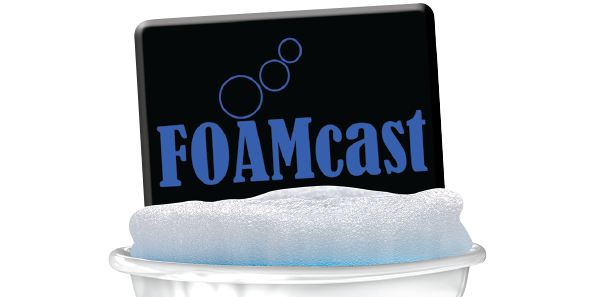
In the two years that we’ve been doing the FOAMcast podcast, some of the most interesting topics covered have come from fields outside of emergency medicine. This year, we’ve recorded two episodes on new guidelines published by experts from non-EM specialties that have an impact on emergency medicine practices. We believe that keeping up with the latest guidelines from our colleagues in other specialties and covering them in the podcast helps us become more well-rounded emergency physicians.
Explore This Issue
ACEP Now: Vol 35 – No 07 – July 2016Diverticulitis Management
In March, we covered a recently released guideline on the management of diverticulitis published by the American Gastroenterological Association (AGA). The topic was inspired by a post on the Emergency Medicine Literature of Note blog (EMlitofnote.com) by Ryan Patrick Radecki, MD, MS. Dr. Radecki’s ACEP Now article “Antibiotics, Hospital Admission May Not Help Uncomplicated Diverticulitis” also addressed the topic.
We were surprised to learn that the AGA isn’t routinely recommending antibiotics in the management of CT-confirmed uncomplicated diverticulitis. According to its new guideline, antibiotics neither hasten recovery nor prevent complications and may be used selectively—although it’s worth noting that this recommendation was based on fairly low-quality evidence.
Additionally, we found some of the AGA guidelines and other statements to be simply too funky and irresistible not to repeat here:
- Mainly, we enjoyed the fact that the guideline answered everyone’s essential and crucial question about whether eating popcorn, nuts, or seeds should be avoided in patients with acute diverticulitis. (There’s no need to recommend avoiding these foods.)
- Do probiotics help decrease recurrence, pain, or the need for surgery? (No, no, and no.)
- Should physicians encourage patients with acute diverticulitis to engage in vigorous exercise in an attempt to decrease recurrent disease? (Yes!)
- Finally, we were interested to learn that recommending elective colonic resection for patients suffering from an initial episode of acute uncomplicated diverticulitis isn’t necessary. (Confession: we were less interested in this last recommendation and more than just a little bit surprised that this notion actually needed official clarification.)
Brief Resolved Unexplained Events
Last month, another clinical guideline caught our eyes, this time coming from the American Academy of Pediatrics (AAP). The news is that the term “apparent life-threatening event” (ALTE) in neonates and infants has now been replaced by the somewhat less intimidating term “brief resolved unexplained event” (BRUE). This change comes 30 years after the term ALTE was proposed as a replacement for “near-miss sudden infant death syndrome,” as well as the subsequent appearance of a substantial body of literature demonstrating that SIDS and ALTEs were indeed distinct and unrelated clinical entities.
Pages: 1 2 3 | Single Page





No Responses to “Medical Guidelines from Non-Emergency Medicine Experts Benefit Emergency Physicians”